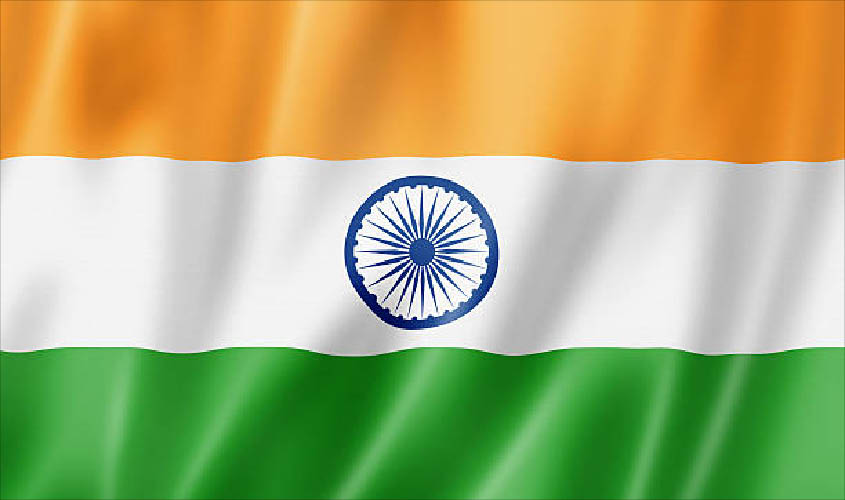The emblem debate began when Siddaramaiah, former Karnataka CM, raised a separate flag demand.
The rising demand for separate emblems, particularly from non-Bharatiya Janata Party ruled states, is being seen by many experts as a move by the respective state governments to cover up their failures in fulfilling developmental aspirations of the people on the ground level.
The emblem debate began when Siddaramaiah, former Karnataka Chief Minister, invoked the separate flag demand in the recently concluded Assembly elections. Following in Karnataka’s footsteps, a similar demand was raised in Odisha for according state song status to Bande Utkala Janani written by “Kantakabi” Laxmikanta Mohapatra.
M.P. Singh, an expert of federalism and senior professor of political science at Delhi University, told The Sunday Guardian, “Demands for separate emblems are not new, as from Jammu and Kashmir to Nagaland and from Punjab to Sikkim, many states have already posed the demand for their separate emblems in the past. However, the new addition of similar demands from states like Odisha, Karnataka and Bihar is simply unreasonable.”
Singh, who has done extensive work on Indian federalism and written on the issue, said, “The demand of separate flag in Karnataka ahead of the elections was nothing but to cover up the massive corruption prevailing in the state. A similar demand is being made in Odisha, which will go to the polls next year. Odisha, Karnataka and Bihar prove the folly of such demands. Particularly, Odisha and Bihar are the least developed states of the country.”
“In the absence of any substantive issues, the governments in these states are inciting such unreasonable demands. Also, in order to counter the growing support base of the BJP at the Centre and states, these non-BJP ruled governments are invoking such issues,” Singh said.
“The amount of freedom that the Indian Constitution provides to its people is unmatched anywhere else. I don’t see any erosion in the federal structure of the country in four years of the BJP-ruled Central government. Instead, I feel that the incumbent government has taken steps to strengthen cooperative federalism,” Singh added.
Speaking on the issue, Manindra Nath Thakur, professor of social science at the Jawaharlal Nehru University, said, “Leave aside Odisha and Karnataka, Bihar adopted a song titled ‘Bihar, the garland of India’, as the state song five years ago. The song was written to mark the occasion of Bihar Diwas, which was celebrated on the completion of 100 years of the state. The aim was to invoke Bihari identity. But in my opinion, this is just pragmatic politics, more than anything else. Such demands are raised when a government wants to hide its inability to take care of its primary role of providing healthcare, sanitation, food, shelter, electricity, water and education.”
The BJP criticised the Congress in Karnataka for the “divisive” emblem demand, but, in Odisha, along with Congress and cultural organisations like Ame Odia and Utkal Sammilani, the BJP is supporting the demand for according state song status to Bande Utkala Janani.
However, a senior BJP leader from Odisha told The Sunday Guardian on the condition of anonymity: “Such demands don’t suit the BJP’s ideology as Syama Prasad Mookerjee’s slogan was ek vidhan, ek pradhan, ek nishan (one Constitution, one Prime Minister and one flag); therefore, the party has very minimal support for a separate emblem demand.”
Ashwini Mohapatra, a member of Utkal Sammilani, said, “It is sad that the song which had inspired thousands of Odias during the separate province agitation is yet to get due respect from the state government. The incumbent government has been ignoring our long overdue demand.”
Sanjay Sahu, a member of Ame Odia said, “Our demand is not for creating any anti-national sentiment; it is just to pay respect to the song which historically had united Odias. We demand an immediate process from the government to grant Bande Utkal Janani the status of a state song.”
The constitutional status on states having their own songs or flags is clear. The Constitution does not prohibit a state from having a state flag. In the S.R. Bommai v/s Union of India (Supreme Court 1994) case, the Supreme Court declared that there is no prohibition in the Constitution for the state to have its own flag. However, the state flag should not dishonour the national flag. In this way, a clear prominence was given to the national flag.
Bijendra Jha, a scholar at Jawaharlal Nehru University, told The Sunday Guardian, “A flag represents a legacy which has an emotional connect with the people and it shows a shared past, struggles and achievements of a country. It also defines a country’s cultural, political and social character and promotes the nation-building process. In the case of a state, sub regional identity is just a falsehood.”

